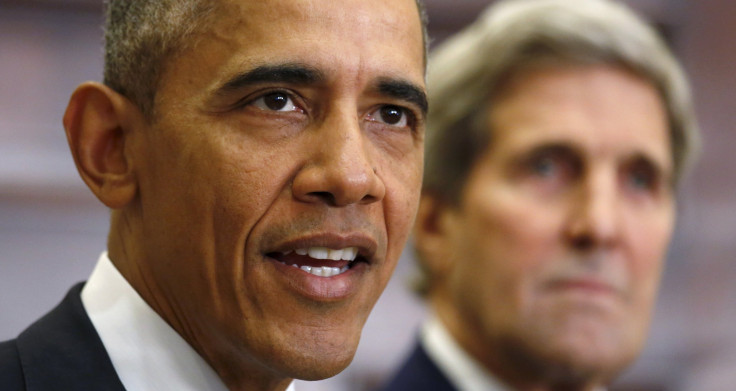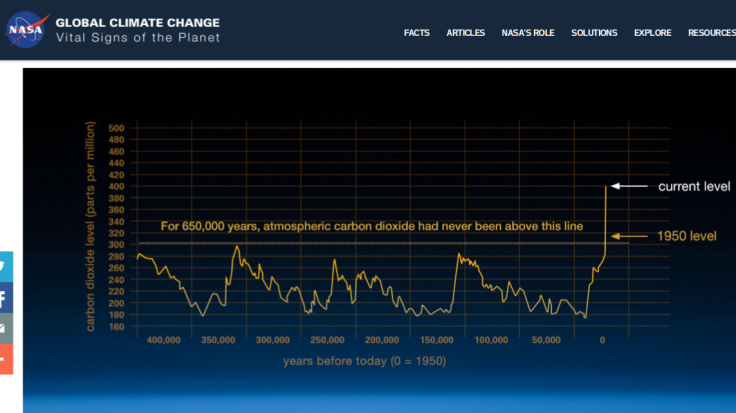
Barack Obama rejected the Keystone XL Pipeline on Friday, shutting down a polemic resource extraction proposal that has defined climate change movement for most of his time in office. The Keystone XL Pipeline isn’t just a tube that Transcanada planned to use to move tar sands from Hardesty, Alberta to Houston, Texas, but a symbol of the environmental movement, a rope in a tug-of-war over America’s response to climate change. Obama’s rejection of the Transcanada proposal will also have international implications at the international climate summit in Paris next month.
Before we jump into the political implications of Obama’s decision, here are a few basics about the pipeline itself.
1) What Is The Keystone XL Pipeline?
A series of pipelines already connects Transcanada’s crude oil from tar sands mines in Alberta to oil refineries in Texas. The “XL” pipeline was a proposed expansion of this hydrocarbon highway that would have cut down the driving time and added a few lanes, resulting in significantly more oil being brought from the Alberta tar sands to the international market.
The State Department was tasked with determining whether or not the pipeline was in the national interest of the U.S. Yesterday, it determined that it was not, citing economic, environmental and political reasons.
Obama agreed with that assessment on Friday and announced that he was using his his authority to reject the pipeline proposal (you can listen to his 8 minute speech to reporters, below).
2) What Are Tar Sands?
Tar sands are a mix of clay, sand and bitumen -- the petroleum base of asphalt that makes it softer and blacker than concrete. Tar Sands are “younger” hydrocarbons, dead vegetable and animal matter that have been exposed to less heat, pressure or time than the “black gold” that spilled out of shallow wells in the early 20th century.
Think of bitumen as an unripe green banana, and tar sands as a really high tree. You have to work harder to get the banana and once you have it you have to ripen it. With a banana, that means putting it in a brown paper bag for a day.
With bitumen, it means exposing it to more heat and pressure to coax the hydrocarbons -- a process that requires the burning of even more fossil fuels.
3) Why Do Activists Oppose Transcanada’s Project?
Transcanada found it profitable to pick that high-hanging, unripened petroleum because of market forces. The price of oil is high enough to justify the financial costs of extracting and processing tar sands.
Climate change activists say that these short-term profits do not justify the long-term environmental costs. They also see the Keystone XL Pipeline as a symbol in the global conversation on Climate Change.
In February, climate change author and 350.org founder Bill McKibben suggested that Obama’s rejection of the Keystone XL pipeline would be a sobering slap in the face to Canada’s carbon policies and an energizer to other corners of the climate change movement.
“If Obama does reject it, perhaps it will help wake up Canada and move it back from its status as a rogue nation on climate change,” McKibben told HuffPo, adding that “it will certainly energize those fighting Energy East, Kinder Morgan, and so on. If we're to deal with climate change, the tar sands need to stay in the ground, full stop.”

4) Who Supports The Keystone XL Pipeline?
Transcanada, the Canadian government and some workers may have benefited directly from the pipeline’s construction but that’s pretty much it. Climate change skeptics support the Keystone pipeline mainly for the reason that activists oppose it -- as a symbol of future policy priorities.
5) What Does Obama’s Move Mean For The 2016 Presidential Election?
Obama’s decision might cut a few hydrocarbons out of the atmosphere, but it will likely pour gasoline on fiery Republican candidates -- all of whom supported the pipeline. You can expect them to run with this Obama-branded political football in the next debate.
For democrats, it is a bit more complicated. Bernie Sanders and Martin O’Malley can no longer hold up the pipeline as something that they would fight for -- that battle for environmentalists has just been one. But the can say that they were in line with Obama, who is still popular with Democrats, all along.

Hillary Clinton has dodged questions on Keystone until this September, when she finally announced her position on a campaign stop in Iowa. While there’s no proof of this, it is not unthinkable that she took her position after queues from the White House, or hints from contacts inside the Obama State Department that she used to run.
"I think it is imperative that we look at the Keystone pipeline as what I believe it is -- a distraction from important work we have to do on climate change," Clinton told a voter at a community forum in Des Moines.
The upshot: Obama’s decision will deepen furor among Republicans against the Obama administration, and among Clinton critics who see her as overly pragmatic on progressive issues.
Obama tried to temper this in his address on Friday, saying that they Keystone XL Pipeline would have been “neither be a silver bullet for the economy [...] nor the express lane to climate disaster.”
"If we want to prevent the worst effects of climate change before it’s too late, the time to act is now." —@POTUS https://t.co/yyUhBOVTc8
— The White House (@WhiteHouse) November 6, 20156) What Does This Mean For The Paris Climate Negotiations?
Rejecting the Keystone XL Pipeline won’t be a silver bullet at the Paris climate talks either. But the symbolic move could be a show of good faith as the White House seeks to secure relatively ambitious commitments on reducing carbon emissions.
“America is now a global leader when it comes to taking serious action to fight climate change,” Obama told reporters on Friday. “And Frankly, approving this project would have undercut that global leadership.”
In other words, Obama’s move is a message to the other nations going into the negotiations: we may be the second-largest carbon emitting country in both absolute terms and per capita, but we’re going to lead the fight to change that.
© 2024 Latin Times. All rights reserved. Do not reproduce without permission.